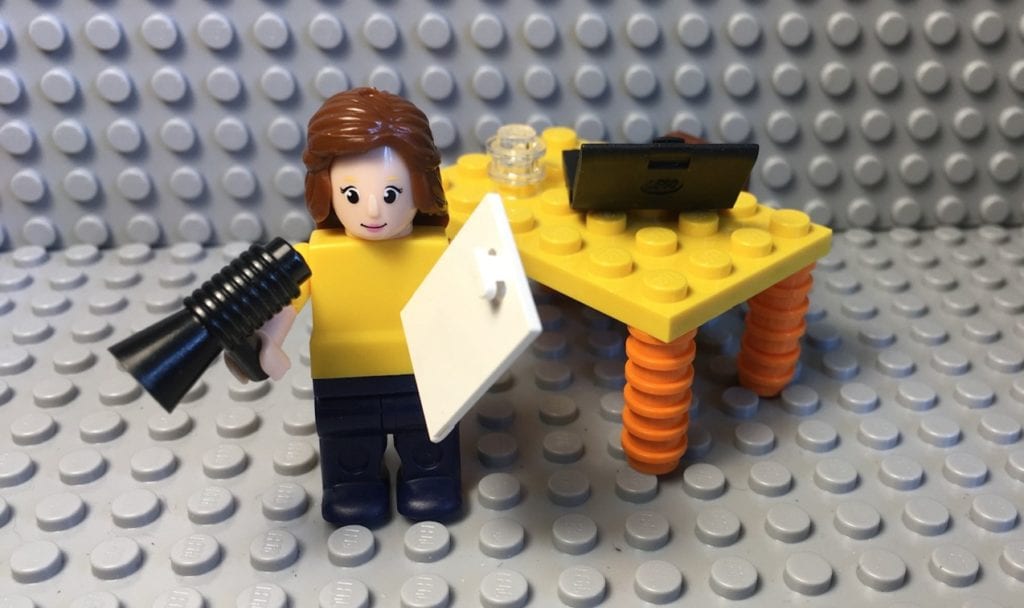By Órla Cronin
Join our Introduction to Producing Virtual Events workshop on 20th Jan 9-11:30am
Behind every well-facilitated event is a great producer! In this article, ICA-UK’s virtual facilitation expert, Órla Cronin, discusses the crucial role of the producer when delivering a compelling virtual event for over 8 people. Orla Cronin is a research psychologist, a trainer and a facilitator, whose transition from face-to-face to virtual facilitation began in 2006. Her passion for the possibilities of virtual facilitation, plus a commitment to reducing her carbon footprint over the past decade, led Órla to specialise in virtual training and facilitation, and she also trains other facilitators.

Recently, with ICA:UK colleagues, I delivered 5 short training sessions on virtual facilitation to citizen activist facilitators. One of the most frequent questions I encountered was: ‘I’ve never thought of having a producer: I try to do it all myself. What does a producer do?’
The producer role when delivering a compelling virtual event is crucial. When I am facilitating or training virtually, I always have a producer, but a good rule of thumb might be to have one when more than eight people are involved. If there are more than thirty, we involve a second producer.
A fresh voice is refreshing: for longer events my colleagues and I usually alternate facilitating and producing.
Some of the roles in a virtual event which fall naturally to a producer can be:
- On-boarding participants, for example conducting audio checks
- Troubleshooting
- Being so deeply familiar with the script that they are able to step in for moments, or for the rest of the session, if the facilitator has deteriorating bandwidth or a technical outage
- Creating, running and visiting breakout sessions during the event
- Supporting people who leave their breakouts, or on-boarding people who were late/absent
- Sharing links to tasks and documents for group scribing
- Muting microphones where background noise becomes untenable (vacuum cleaners! Building work! Children!)
- Watching the timer and sending messages to breakouts
- Harvesting output (polls, documents etc) and making it available to all afterwards
- Recording (including pausing during breakouts and breaks), and disseminating the recording. Recording can be made automatic but it is incredibly difficult to remember to pause! Some platforms have good editing tools built in to take out ‘dead air’, but others, including the current market leader, only allow you to top and tail recordings unless you download into editing software.
- Managing a ‘backstage’ communication channel (e.g. a messaging app) between facilitator, producer and, perhaps, the lead client.
And while these roles are vital, what I haven’t mentioned yet is that virtual facilitation can be stressful. A complex, high stakes meeting, where you aren’t in the same physical space as your participants, removes a lot of the light social interaction and feedback which generates trust and affirmation. In this scenario a producer becomes more than an assistant: they are a trusted colleague and a similarly skilled facilitator. They co-design, offer reassurance and a calm presence when things go pear-shaped, and provide insight during reflections and debriefs.
Coach, counsellor, superhero: that’s what a good producer is!
How can we help ?
Join our next Facilitating Virtual Events course and learn practical ways to make online events participatory, engaging and productive. We can offer both public and bespoke courses, consultancy, and mentoring. For more information contact Orla@orlacronin.com or submit an enquiry.
Ask us for help! Wanting to facilitate your own virtual meeting and looking for some guidance and support? Contact us to discuss how we can help- talking through the design, offering tips and hints, mentoring your development, or even asking us to co-facilitate or produce for you.
